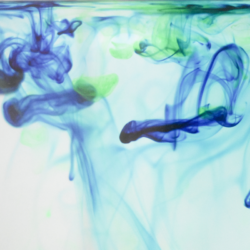A state of dependence is established following the continuous or periodic absorption of certain substances having pleasant effects which induce physical or psychological drug addiction (one also speaks of “drug addiction” or “drug dependence”). This dependence can however generate a physical dependence (state of adaptation of the body of the subject to the substance. In the absence of consumption, there is a state of withdrawal with tremors, vomiting, sweating, etc.) and psychic (need to consume the substance to experience pleasure or to avoid a state of discomfort or anxiety).
Why do we have addictive disorders and addictive dependencies?
Serotonin deficiency:
A serotonin deficiency rather results in addiction by compulsion , characterized by the consumption of alcohol at all times and / or cigarettes, bulimic behavior (must fill the stomach), the presence of sugar compulsion, the notion of compulsive gambling (cannot stop) and / or sports addiction (runner).
- Evening addiction (chocolate, alcohol, tobacco, computer, video games, etc.)
Dopamine deficiency:
On the contrary, a dopamine deficit will be evoked in the event of addiction by search for pleasure and sensation , which is found in the case of social alcoholism, in the cigar smoker, the professional gourmet who enjoys eating, the player ( search for sensations), the extreme athlete, the sociopath addicted to violence and deviance.
- Morning and evening addiction (coffee, tobacco, pathological gambling, sexual addiction, etc.)
Are there natural treatments to fight against drug addiction?
Yes, there are indeed natural methods to support these steps. However, the latter must imperatively be associated with a psychological follow-up , in addition or not to substitution treatments.
Nicotine addiction:
⇒ These medicinal plants help smokers in particular to detoxify themselves from tobacco. They are indeed used in smoking cessation in the same way as varenicicline ( Champix )
Inhaling the essential oil of pepper tree would thus help to free oneself from tobacco addiction as well as to reduce the acute need to smoke.
-
Valerian :
For its anxiolytic, sedative and hypnotic properties, valerian is indicated in anxious rumination, physical tension and chronic exposure to stress. It acts on areas of dependence (alcohol, tobacco, etc.). It helps to let go and is an adjuvant in stopping smoking . In addition, valerian can help with the withdrawal of benzodiazepines and plays a role of relay to psychotropic drugs.
-
Oats :
The moderate sedative and sleep-regulating action is attributed to the fat contained in oats, the molecular structure of which is close to serotonin and dopamine. The presence of tryptophan promotes the synthesis of serotonin. This would explain the proposed use of the mother tincture of oats in smoking cessation , or even in opioid withdrawal .
Alcohol addiction:
⇒ This medicinal plant reduces dependence on alcohol. It causes painful disorders when taking alcohol (anti-abuse effect): hot flashes, nausea, vomiting, increased heart rate, feeling of malaise. The association between alcohol and painful disorders leads to a distaste for alcohol in heavy drinkers, who are thus led to modify their behavior. This plant is therefore used in alcohol withdrawal, in the same way as disulfiram ( Esperal ).
Kudzu acts on alcohol metabolism and in alcohol addiction , by inhibiting ALDH2 and by antabuse effect, and kudzu extract does not appear to increase the effects of alcohol.
⇒ The following medicinal plant, on the other hand, decreases alcohol dependence by reducing withdrawal symptoms in heavy drinkers. Used to help maintain abstinence during alcohol rehab, like acamprosate ( Aotal ).
In connection with its richness in 5-HTP, griffonia is indicated in mild to moderate mood disorders of the serotonergic type, with irritability, nervous hyperreactivity, tantrums, aggressiveness, anxious agitation, compulsive or addictive behavior (food , alcohol, tobacco, games, excessive shopping, extreme sport, etc.). This medicinal plant is therefore indicated in various dependencies and addictions.
⇒ Modulator of the opioid system and antagonist of opiates, the active principles of this medicinal plant bind to certain receptors in the brain stimulated by opiates and which play a role in the mechanisms of dependence. By modulating the action of these receptors, these active ingredients help reduce the urge to drink in people dependent on alcohol with a consumption of more than 60g (about 6 glasses of wine) per day for men and 40g (about 4 glasses of wine) per day for women, as well as namelfene ( Selincro ).
The trisubstituted benzoflavone (BZF fraction) of passionflower has shown significantly encouraging results in the reversal of tolerance and dependence of several psychotropic drugs predisposing to drug addiction, in particular morphine, nicotine, ethanol (alcohol), diazepam and delta-9-tetrahydrocannabinol (THC).
Benzodiazepine withdrawal aid:
Not only does the BZF fraction of passionflower not generate dependence on its own, but it alleviates dependence on benzodiazepines , as has been shown in vivo .
Alcohol withdrawal aid:
In vivo , a 2017 study showed that alcohol-treated groups exhibited increased nociceptive thresholds after alcohol withdrawal, which was reversed by Passiflora incarnata , when measured by the plaque test. heated. Additionally, treatment for alcoholism increased levels of brain-derived neurotrophic factor (BDNF) and interleukin-10 in the prefrontal cortex, which P. incarnata did not reverse. These results indicate that the plant could be a potential treatment for alcohol withdrawal syndrome .
Some advice to follow when taking substitution treatment for drug addiction
- Become aware of the risk of excessive sweating, nausea, constipation (drink plenty of water, a diet rich in fiber such as green vegetables and fruits, baked apple, prunes).
- Avoid the consumption of alcohol which increases sedation.
- Be aware of the danger of taking the substitution treatment with other drugs (especially buprenorphine and benzodiazepines) or alcohol because there is a risk of deep sleep which can lead to coma.
- No sudden stop because there is a risk of withdrawal syndrome which may appear after 36 hours.
- It is imperative to stop all drug use during the substitution treatment, not to misuse or to excessively consume.
- Avoid or remain vigilant when driving a vehicle and / or using machines.
- Respect the schedule of clinical and laboratory examinations established by the doctor (monitoring of treatment with Methadone and liver tests) and regular urinary control.
- Be vigilant about the respect of the dosages and the risks of overdose.
- Psychological and social care and follow-up essential which must be coordinated between the various actors and accompanying persons (doctor, psychologist, pharmacist, family, friends).
- Break the isolation and if necessary seek contact through an associative framework (cultural, social or sports).
Medical bibliographic sources and clinical trials :
-
Rose JE, Behm FM. Inhalation of vapor from black pepper extract reduces smoking withdrawal symptoms. Drug Alcohol Depend. 1994
-
CORDELL, Barbara et BUCKLE, Jane. The effects of aromatherapy on nicotine craving on a US campus: A small comparison study. The Journal of Alternative and Complementary Medicine, 2013
-
Riedel E. et al., Inhibition of gamma-aminobutyric acid catabolism by valerenic acid derivatives, Planta Med., 1982
-
Khom S. et al., Valerenic acid potentiates and inhibits GABA(A) receptors; molecular mechanism and subunit specificity, Neuropharmacology, 2007
-
Ortiz J.G. et al., Effect of Valeriana officinalis extracts on (3H)flunitrazepam binding, synaptosomal(3H)GABA uptake, and hippocampal (3H)GABArelease, Neurochem Res., 1999
-
Becker A. et al., The anxiolytic effects of a Valerian extract is based on Valerenic acid, BMC Complementary and Alternative Medicine, 2014
-
Benke D. et al., GABA A receptors as in vivo substrate for the anxiolytic action of valerian root extracts, Neuropharmacology, 2009
-
Marder M. et al., 6-methylapigenin and hesperidin; new valeriana flavonoids with activity on the CNS, Pharmacol Biochem Behav., 2003
-
Savage K. et al., GABA-modulating phytomedicines for anxiety; A systematic review of preclinical and clinical evidence, J.Phytother Res., 2018
-
Andreatini R. et al., Effect of valeptriates (valerian extract) in generalized anxiety disorder; a randomized placebo-controlled pilot study, Phytother Res., 2002
-
Lin RC, Guthrie S, Xie CY, Mai K, Lee DY, Lumeng L, Li TK. Isoflavonoid compounds extracted from Pueraria lobata suppress alcohol preference in a pharmacogenetic rat model of alcoholism. Alcohol Clin Exp Res. 1996
-
David M. Penetar, Robert R. MacLean, Jane F. McNeil, Scott E. Lukas. Kudzu Extract Treatment Does Not Increase the Intoxicating Effects of Acute Alcohol in Human Volunteers. Alcohol Clin Exp Res. 2011
-
Den Boer J.A. et al., Behavioral, neuroendocrine, and biochemical effects of 5-hydroxytryptophan administration in panic disorder, Psychiatry Res., 1990
-
Dhawan K., Drug/substance reversal effects of a novel trisubstituted benzoflavone moiety (BZF) isolated from Passiflora incarnata Linn. A brief perspective, Addict Biol., 2003
-
Dhawan K. et al., Attenuation of benzodiazepine dependence in mice by a tri-substituted benzoflavone moiety of Passiflora incarnata Linneaus; a non-habit forming anxiolytic, J Pharm Pharm Scie., 2003
-
Schunck R.V.A. et al., Standardized Passiflora incarnata L. ExtractbReverts the Analgesia Induced by Alcohol Withdrawal in Rats, Phytother Res., 2017






Many thanks for making the effort to line all this out for people like us. This kind of article was quite helpful to me.
you’re welcome !